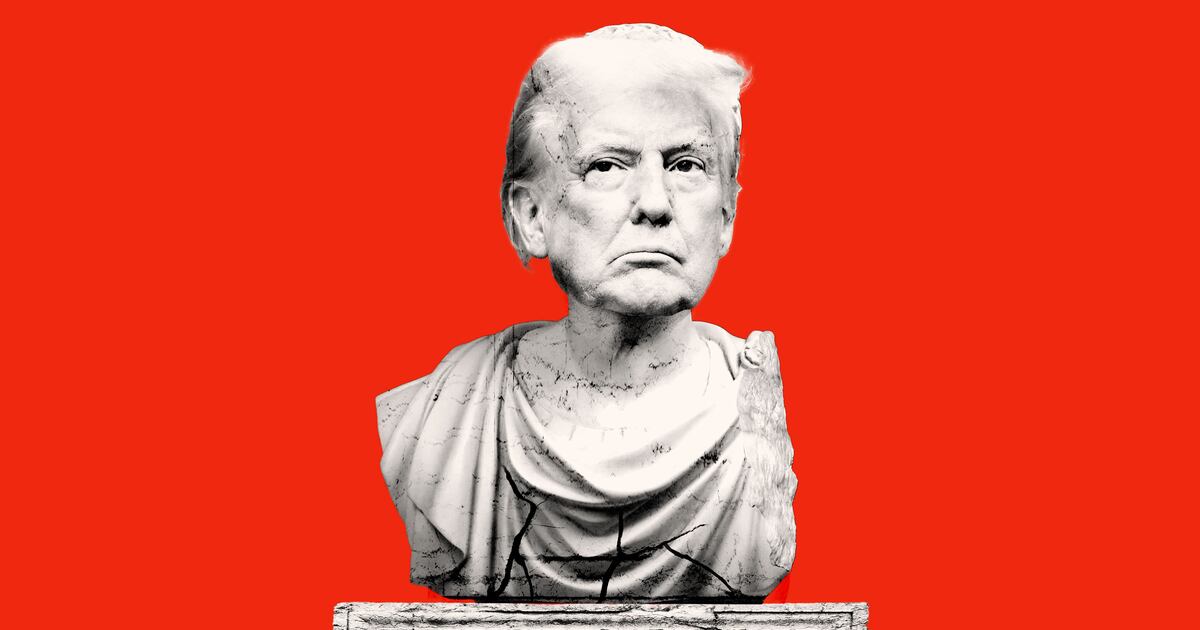American Media Inc., the publisher of the National Enquirer, is seeking to sell the embattled tabloid just as Amazon CEO Jeff Bezos is reportedly meeting with New York federal prosecutors over extortion and hacking claims that he and his associates have made against the publisher.
Earlier this year, the Enquirer enraged the billionaire after it ran a story on his alleged extramarital affair with media personality Lauren Sanchez. Bezos fired back with a scathing post on Medium in which he claimed that the Enquirer had tried to extort him with dick pics. Bezos’ security consultant, Gavin de Becker, also accused AMI of being “in league” in Saudi Arabia in a Daily Beast op-ed.
On Wednesday evening, American Media Inc. said it was exploring “strategic options for its National Enquirer (U.S. and U.K. editions), Globe and National Examiner brands” in a press release. The publisher said it expected a sale to occur “in the near future.”
“We have been keenly focused on leveraging the popularity of our celebrity glossy, teen and active lifestyle brands while developing new and robust platforms including broadcast and audio programming, and a live events business, that now deliver significant revenue streams,” AMI President David Pecker wrote in the release. “Because of this focus, we feel the future opportunities with the tabloids can be best exploited by a different ownership.”
However, The Washington Post reported that the internal decision for AMI to sell the Enquirer was driven by hedge fund manager Anthony Melchiorre, who has an 80 percent stake in AMI. A source told the newspaper that Melchiorre was “really disgusted” by the Enquirer’s reporting on Bezos’ extramarital affair.
The Enquirer allegedly paid Sanchez’s brother for photographic evidence of her affair with the mogul—and, Bezos claimed in a blog post earlier this year, tried to blackmail him before it ran its story on the tryst.
“Any personal embarrassment AMI could cause me takes a back seat because there’s a much more important matter involved here,” Bezos wrote. “If in my position I can’t stand up to this kind of extortion, how many people can?”
De Becker and Bezos have also hinted that Bezos might have been a target for the Saudis due to the CEO’s ownership of the Post. Jamal Khashoggi, a columnist for the Post who was deeply critical of the Saudi government and Crown Prince Mohammed bin Salman, was killed late last year in Istanbul’s Saudi Arabian consulate. In his op-ed, de Becker wrote that the “Saudi government has been intent on harming Jeff Bezos since last October, when the Post began its relentless coverage of Khashoggi’s murder.”
“Our investigators and several experts concluded with high confidence that the Saudis had access to Bezos’ phone, and gained private information,” de Becker wrote. “As of today, it is unclear to what degree, if any, AMI was aware of the details.”
Bezos will be addressing both his allegations of extortion and de Becker’s allegations of hacking in meetings with the U.S. Attorney's Office for the Southern District of New York, according to CNN.
Federal prosecutors have already been probing Bezos' extortion claim, and have yet to come to any conclusions. To investigate the hacking claims, the New York federal prosecutors are reportedly seeking to gain access to Bezos's electronics and Bezos has been “in negotiations” with prosecutors. Matthew Schwartz, a lawyer for Bezos, did not respond to CNN's request for comment. A spokesman for the U.S. attorney's office and the FBI also reportedly declined to comment.
Beyond the Bezos incident, AMI acknowledged paying ex-Playboy model Karen McDougal $150,000 for her story about her alleged affair with President Trump—a Pecker pal—in a catch-and-kill scheme. The deal was allegedly made in order to prevent the story from being published and “influencing the election.” AMI was also involved with a similar catch-and-kill deal with adult film star Stormy Daniels—who also claimed she had an affair with Trump.
On top of all the scandals, the Enquirer tabloid is also reportedly facing massive debt and a huge dip in their circulation numbers—selling 516,000 copies per issue in 2014 to 218,000 copies per issue in December.






